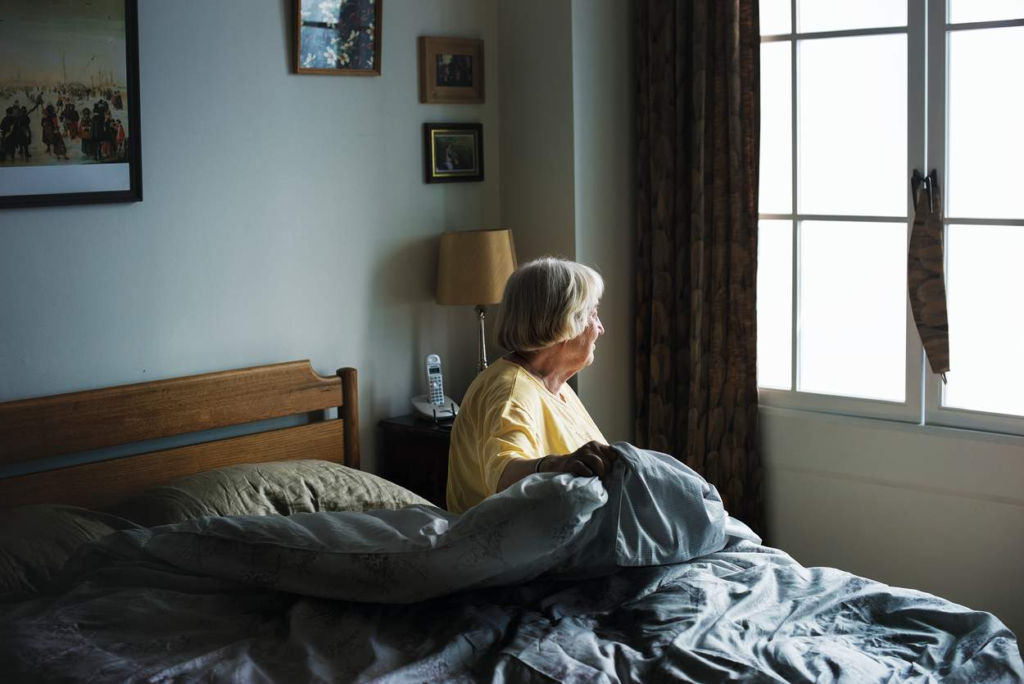The Left Party in Saxony has introduced a plan to address the growing issue of loneliness, particularly among the elderly. They emphasize the importance of social cohesion and propose measures to foster community connections.

The Left Party in Saxony has put forth a proposal to tackle the rising issue of loneliness. “Societies with strong social cohesion are friendlier, more peaceful, more productive, and more open to innovation. It is a crucial political task to create opportunities so that no one has to be lonely if they don’t want to be,” the party stated. While the focus is often on the elderly, loneliness is also becoming a problem among younger people.
Susanne Schaper, the party leader, highlighted the growing issue of loneliness in recent decades, particularly in East Germany. “Not long ago, loneliness was a smaller problem than it is today. The past few decades have exacerbated it, especially for older people,” she told the German Press Agency. Economic struggles have led to fewer people starting families, and those without children often find themselves isolated in old age. Additionally, many families were separated as younger members moved to larger cities or to the West for work.

The cost of social interactions
Schaper pointed out that socializing has become increasingly dependent on financial means. “It used to be common to meet regularly in pubs or other social venues, but now it’s often a matter of money, and the distances to these places have grown longer,” she said. Social contacts now require much more effort, which can be particularly challenging for older individuals. Digital media, she noted, cannot replace face-to-face interactions. Loneliness is also a significant factor in Saxony’s high suicide rate compared to other regions.
Statistics reveal that a fifth of the population nationwide lives alone, with 940,000 people affected in Saxony. In 1996, the Statistical Office in Kamenz reported this number as 650,000. Experts anticipate that the number of single-person households will continue to grow. The Left Party referred to a survey by the German Depression Aid from last year, which found that about half of the population feels somewhat lonely, with another quarter feeling very lonely.
Creating spaces for social interaction
The Left Party argues that this situation should not be accepted. “Our country deserves a state government that wants to solve this problem and strengthen social cohesion, in close cooperation with civil society,” they asserted. As a first step, they propose creating more spaces for social interaction. Social cohesion, they argue, requires infrastructure and places where people can come together, such as youth clubs, parks, cultural centers, neighborhood centers, libraries, museums, playgrounds, seating areas, or sports facilities.
While it’s unrealistic to expect municipalities and states to maintain all these spaces on their own, they should support volunteer efforts and ensure solid funding for communities. Supporting associations, they argue, can help many people escape loneliness. Since those with low incomes are most affected, all public meeting places should be free or available at a reduced cost.
The Left Party also recommends adopting initiatives like the Thuringian state program “Agathe – Aging in Community.” This program includes training professionals to serve as contacts for people living alone. Additionally, they suggest that Saxony should encourage municipalities to install “chat benches.” “Using these benches signals a desire to engage in conversation, even with strangers, regardless of age. These interactions can lead to acquaintances and friendships,” the party proposed.
They also recommend establishing a department within the Ministry of Social Affairs dedicated to this issue or appointing a “social engagement commissioner” to lead discussions with municipalities and coordinate programs. “Lonely or isolated individuals should know where to turn, no matter their age,” they concluded.





